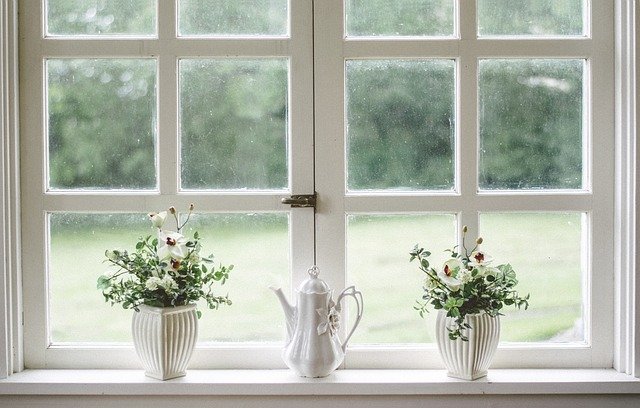When you’re choosing new windows for your home, the frame material has a major impact on performance, aesthetics, and long-term value. In Australia, UPVC and aluminium are the two most popular options, each with distinct strengths. This article will compare UPVC and aluminium windows so you can make a confident, well-informed choice.
UPVC Windows
1. Durability
UPVC (unplasticised polyvinyl chloride) windows are highly durable and resistant to rot, corrosion, and rust. Quality UPVC profiles are UV-stabilised for Australian conditions and won’t warp or swell in humidity, making them a reliable option for coastal and tropical locations. With proper care, they can last for decades.
2. Energy Efficiency
UPVC frames offer excellent thermal insulation due to their low thermal conductivity and multi‑chambered profiles. They help keep homes warmer in winter and cooler in summer, reducing energy use and utility costs. For an overview of how frame materials influence performance, see the Australian government’s guide to window design and performance Your Home: Windows.
3. Maintenance
UPVC is low-maintenance: no painting or sealing required. Routine cleaning with mild soapy water typically keeps frames looking new. Periodically check and clean drainage slots, gaskets, and hardware to maintain smooth operation.
4. Cost
UPVC windows generally come with a lower upfront price than aluminium while providing strong thermal performance. For budget-conscious homeowners, they deliver compelling value over the product’s lifetime.
5. Aesthetic Appeal
Modern UPVC windows come in a broad range of colours, textures, and wood-look finishes. While the frames are usually slightly bulkier than aluminium, advances in design have made profiles slimmer and more contemporary than in the past.
6. Environmental Impact
As a plastic product, UPVC’s production and disposal require careful consideration. However, many manufacturers now offer recyclable profiles, and take-back programs are expanding in Australia. For more on PVC recycling initiatives, see the Vinyl Council of Australia’s resources on sustainability and recycling PVC Recycling.
Aluminium Windows
1. Strength and Durability
Aluminium windows are renowned for their strength, stability, and long lifespan. They won’t warp, crack, or swell with temperature or humidity changes, and they’re well suited to large openings, high-wind zones, and multi-storey applications.
2. Design Flexibility
Because aluminium is strong and easy to extrude, frames can be slim and elegant, maximising glass area and natural light. The material supports a wide array of styles, configurations, and custom shapes for a sleek, architectural look.
3. Energy Efficiency
Aluminium conducts heat more readily than UPVC, which historically meant lower thermal performance. Modern “thermally broken” aluminium frames incorporate an insulating barrier between the inner and outer frame to improve efficiency. Learn more about thermal breaks and why they matter in window performance thermal breaks. While high-quality thermally broken aluminium can perform well, UPVC typically still leads on insulation at comparable price points.
4. Maintenance
Aluminium resists weathering and doesn’t require painting. However, in coastal locations, regular rinsing is recommended to minimise salt build-up. Powder-coated or anodised finishes improve corrosion resistance; specified “marine-grade” finishes and stainless-steel hardware are advisable near the ocean.
5. Cost
Aluminium windows generally cost more upfront than UPVC due to material and manufacturing complexities, particularly for thermally broken frames. Many homeowners find the premium worthwhile for the slim sightlines, large spans, and design flexibility.
6. Environmental Impact
Aluminium is highly recyclable and can be reprocessed repeatedly with minimal loss of quality. Many products contain significant recycled content, lowering embodied energy over the product lifecycle. For more on aluminium’s recyclability, see the industry overview from The Aluminum Association Aluminum Recycling.
UPVC vs Aluminium: Which Is Right for You?
Consider the following factors when deciding which material best suits your home and lifestyle:
1. Climate and Location
In coastal or high‑humidity areas, UPVC’s resistance to corrosion is a major advantage. In regions with high wind loads or where large panels are desired, aluminium’s strength and rigidity often prove beneficial. If you’re in a bushfire‑prone area, check your Bushfire Attack Level (BAL) requirements and ensure your window system is compliant; learn more about BAL ratings via the NSW Rural Fire Service BAL rating guide.
2. Budget
For a lower initial cost with excellent thermal performance, UPVC is hard to beat. If your budget allows for a premium finish or you need large, slim‑framed designs, aluminium can be worth the investment—especially when specified with thermal breaks.
3. Aesthetic Preferences
If you want contemporary, minimal sightlines and expansive glazing, aluminium is often preferred. If you prefer a traditional look, colour flexibility, or realistic timber-effect finishes, UPVC offers many attractive options.
4. Energy Efficiency
UPVC typically provides better insulation out of the box. Thermally broken aluminium frames narrow the gap, though often at a higher price. For verified performance data, review product ratings through the Window Energy Rating Scheme (WERS) WERS for consumers.
5. Environmental Priorities
If recyclability and circularity are key priorities, aluminium’s high recyclability is a strong draw. If you prefer UPVC but want to minimise environmental impact, look for locally made, recyclable profiles and manufacturers with established take‑back or recycling programs.
6. Acoustic Performance and Comfort
Both materials can deliver strong noise reduction when paired with the right glazing and sealing. Check tested acoustic ratings and sealing quality for your chosen system. For guidance, see the Australian Glass & Window Association’s overview of acoustic performance AGWA acoustic guide.
Conclusion
Both UPVC and aluminium windows offer clear advantages. UPVC leads on thermal performance, value, and low maintenance; aluminium excels in strength, slender aesthetics, and design versatility—especially for large openings. By weighing your climate, budget, style preferences, and sustainability goals—and by checking verified performance data—you can choose windows that enhance comfort, efficiency, and the appearance of your home for years to come. For further detail on frame materials and energy performance, the Australian government’s Your Home resource provides an excellent overview Window frames: materials.










